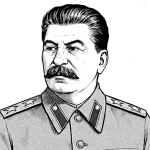“There are events which are so great that if a writer has participated in them his obligation is to write truly rather than assume the presumption of altering them with invention.”

- July 21, 1899 – July 2, 1961
- American
- Novelist, poet, journalist
table of contents
Quote
“There are events which are so great that if a writer has participated in them his obligation is to write truly rather than assume the presumption of altering them with invention.”
Explanation
In this quote, Hemingway stresses the moral obligation of the writer to faithfully recount events that are of great importance or significance. When a writer has been a part of such profound events, whether personal or historical, the duty lies in conveying the truth as it happened, rather than embellishing it with invention or fiction. Hemingway’s perspective here reflects his deep respect for authenticity and the integrity of experience, particularly in the face of monumental events like war, loss, or social upheaval. The writer, in his view, must be a witness to these moments, offering a clear and accurate portrayal rather than distorting or romanticizing them for narrative effect.
Hemingway himself often faced such dilemmas in his work. As a writer who had participated in World War I and served as a journalist in various global conflicts, his firsthand experiences shaped his literary output, particularly in works like A Farewell to Arms and For Whom the Bell Tolls. Hemingway’s commitment to truthful storytelling is evident in the sparse, direct nature of his writing, where the focus is on real human experiences, unclouded by unnecessary fiction. The quote emphasizes that when a writer has been involved in something deeply transformative or significant, there is a responsibility to honor the truth of the event, allowing it to speak for itself without distortion.
In today’s context, this quote resonates with writers, journalists, and memoirists who face the challenge of representing real-life experiences in their work. Whether recounting the trauma of war, historical events, or personal struggles, the obligation to stay true to the facts remains crucial. In an age where fictionalized accounts or distorted narratives are often glamorized or sensationalized for entertainment purposes, Hemingway’s statement serves as a reminder that some events are so significant that their true representation is not just a literary choice, but a moral imperative. This perspective emphasizes the writer’s duty to preserve the honor of the real story, ensuring that history and experience are accurately conveyed for future generations.
Would you like to share your impressions or related stories about this quote in the comments section?


